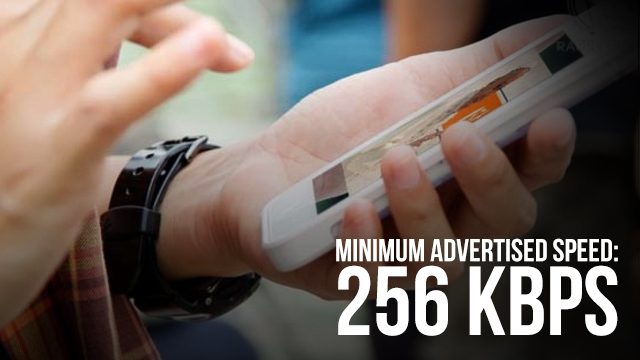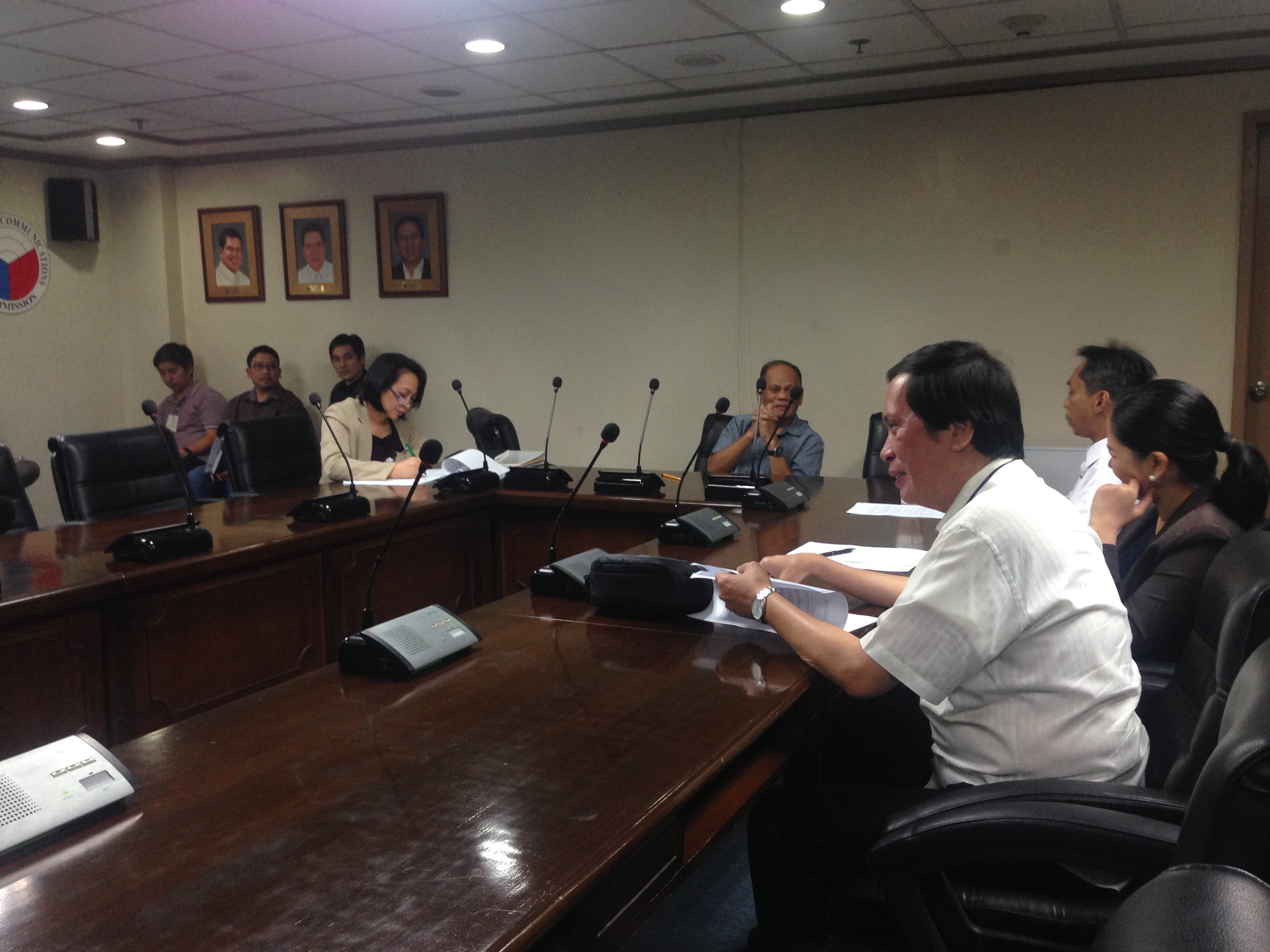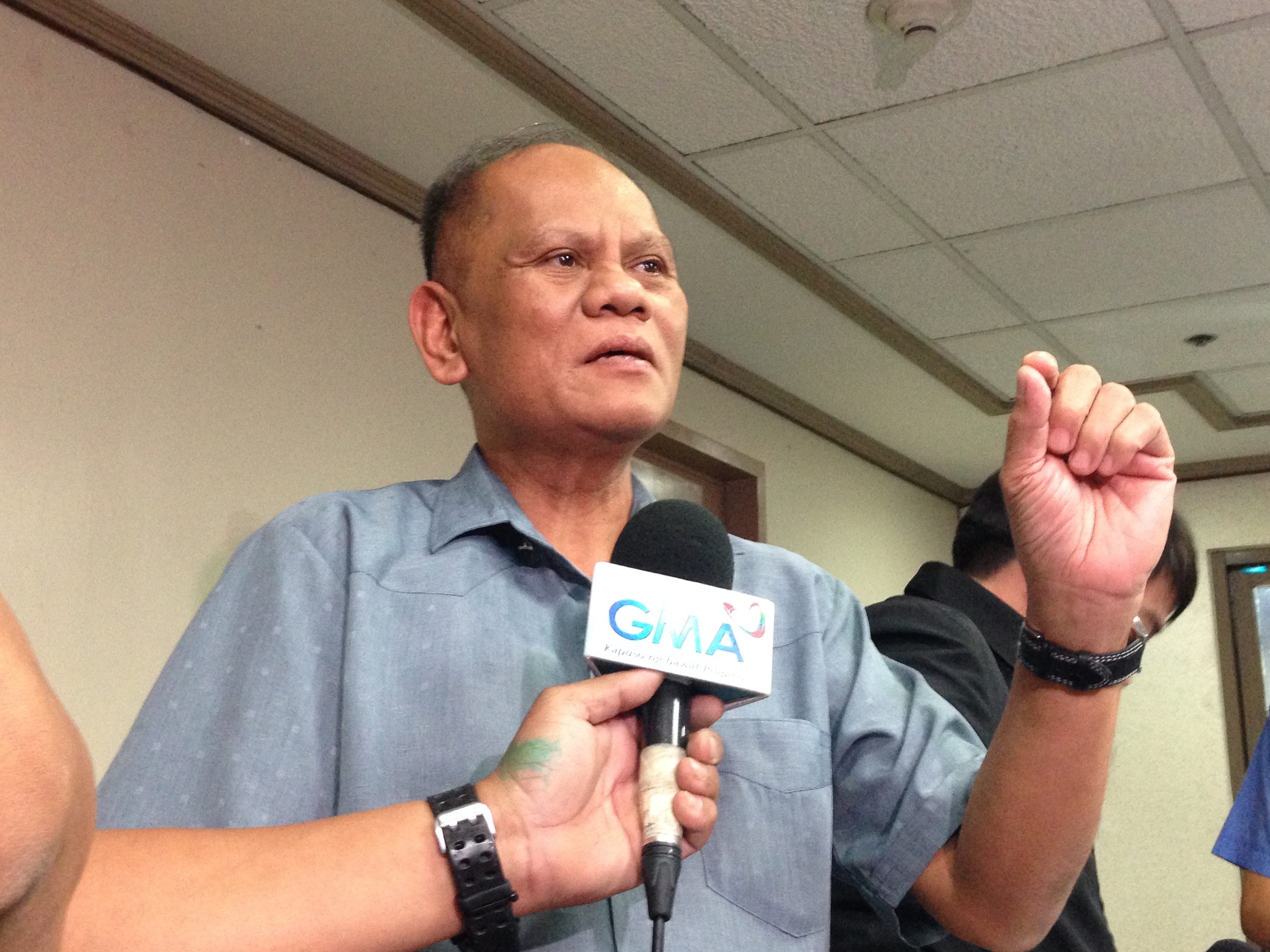SUMMARY
This is AI generated summarization, which may have errors. For context, always refer to the full article.

MANILA, Philippines — The National Telecommunications Commission (NTC) plans to set the minimum speed for those advertised as mobile broadband at 256 kilobits per second (kbps).
This is the same with the minimum advertised speed required for fixed broadband services – DSL, fiber, and cable – which was promulgated last August. (READ: New Internet speed minimum throwback to ’90s?)
“The MC for mobile is a sequel of the first MC saying fixed broadband should deliver at least 256 kbps. We will adopt the same for mobile broadband. so if a service is a GPRS, it won’t be qualified as mobile broadband,” NTC Deputy Commissioner Edgardo Cabarios said on the sidelines of a public hearing in Quezon City on Tuesday, January 12.
Cabarios said the NTC plans to release the rules covering minimum speeds for services advertised as mobile broadband next week once it integrates final feedback from the private sector, industry groups, and civil society organizations.
“This will be the last public hearing for mobile broadband before we promulgate rules because this has been long overdue. We promised it to be promulgated last November,” Cabarios said before the hearing.
On August 13, NTC signed MC No. 07-08-2015, stating that “fixed-line broadband,” such as DSL, fiber, and cable must have data connection speed of at least 256 kbps – the standard of the International Telecommunications Union.
The rules also noted that “about 90% of Internet users in the Philippines are on mobile, while only 10% use fixed-line services.”

Stricter penalties
“The penalty is very small compared to other countries,” Cabarios said in an earlier interview.
The penalty, according to Cabarios, is based on a 79-year-old law, known as the Public Service Act of 1936. (READ: Slow Internet? Blame red tape – Telcos)
With a penalty as low as P200 ($4.28) a day, NTC is worried about the industry’s non-compliance.
This is why the industry regulator is trying to remedy by pushing for an amendment of the 1936 Public Service Act. (READ: Bayantel shows slowest fixed broadband speed in NTC test)
“We had a discussion with the Committee on Trade and there is a proposal to amend the Act including penalties. Criminal penalties on false advert of broadband speeds proposed to increase to P50,000 ($1,055.85) to P1 million ($21,117.09),” DTI Adjudicating Division Officer Ronald Calderon said when asked on updates about proposed higher penalties.
But for Pierre Tito Galla, co-founder of Democracy.Net.PH, a group that advocated the proposed Magna Carta for Philippine Internet Freedom, “NTC cannot set yet additional penalties until NTC sets standards.”

Mixed reviews
Galla, however, welcomed the proposed rules, saying, “We accept the draft memo on mobile broadband in its entirety and hope it gets promulgated soon.”
But for the Philippine Long Distance Telephone Company (PLDT) representative who was present during the hearing, the rules for minimum advertised speed for fixed broadband should be reviewed first and be polished before coming up with those for mobile broadband.
“There are some misses in the rules for fixed broadband. I think that should be polished first before pushing through with the MC for mobile broadband,” the PLDT representative said.
Cabarios also expressed difficulties in getting wired and fixed wireless subscribers to volunteer for measurement of Internet speeds.
Mary Grace Santos, an independent researcher for think-tank LIRNEasia, expressed willingness of civil society representatives present to encourage subscribers to volunteer their broadband services for testing and monitoring.
“We will do a public call over social media so we can encourage more people to actively participate in the monitoring process,” Santos said.
Should there be no opposition from stakeholders, NTC plans to start testing Internet speeds in mobile devices before the elections in May.
“The test will be used for both fixed and mobile broadband. It will be made available if there is no hitch along the way, we wish to complete the process before the election month. If there will be, it will go beyond the election month so June,” Cabarios said. – Rappler.com
$1=P47.35
Mobile phone image from Shutterstock
Add a comment
How does this make you feel?





There are no comments yet. Add your comment to start the conversation.